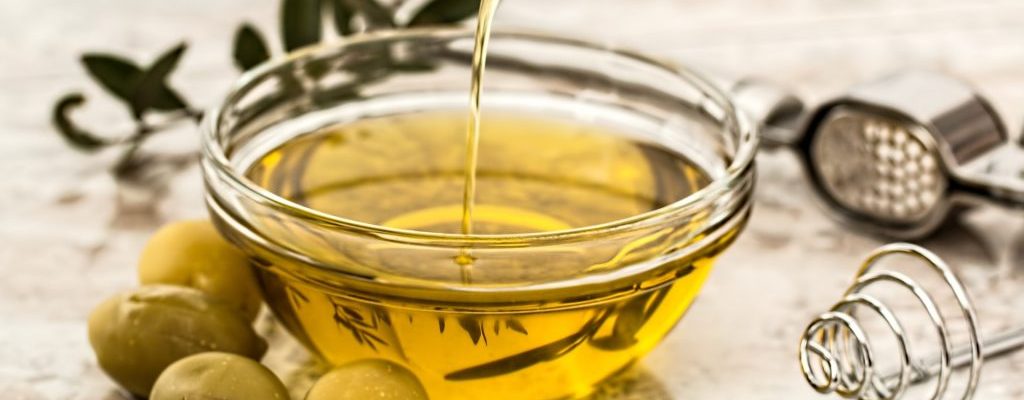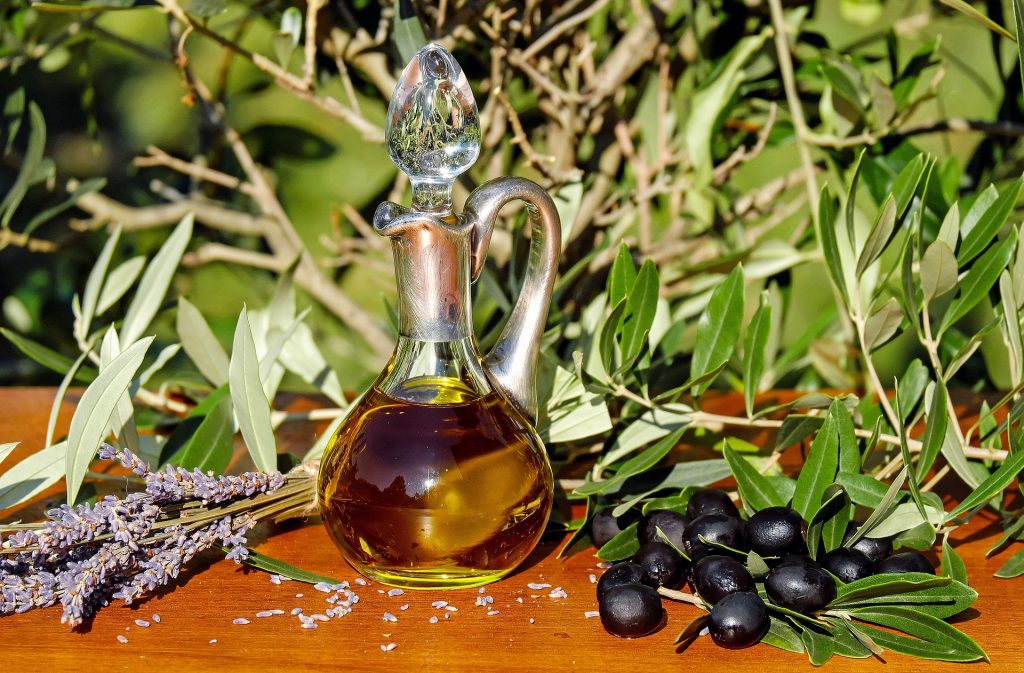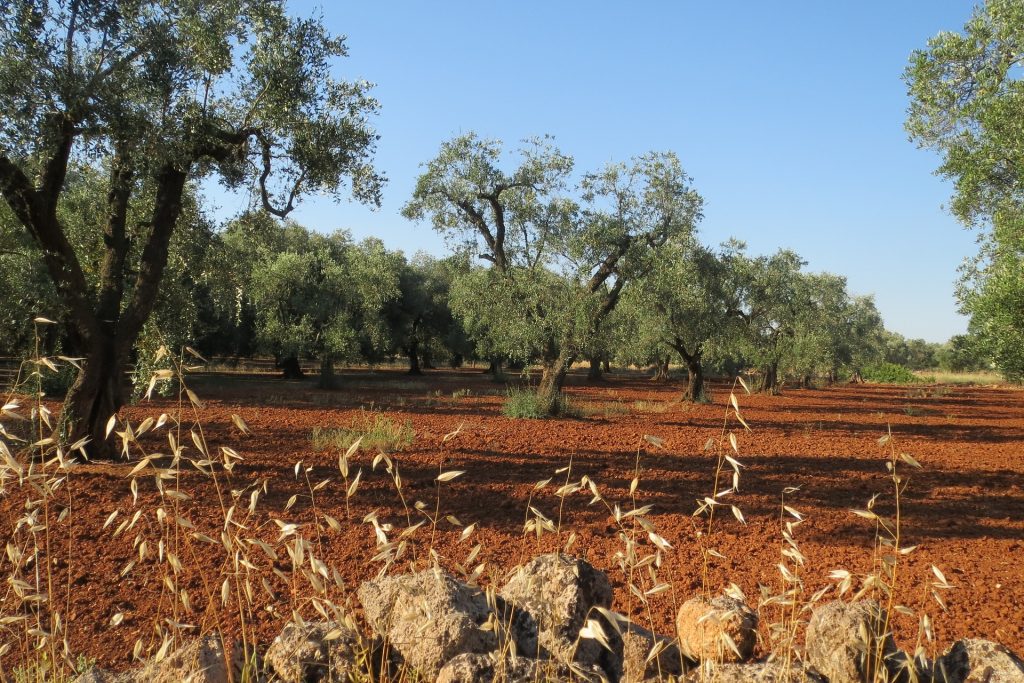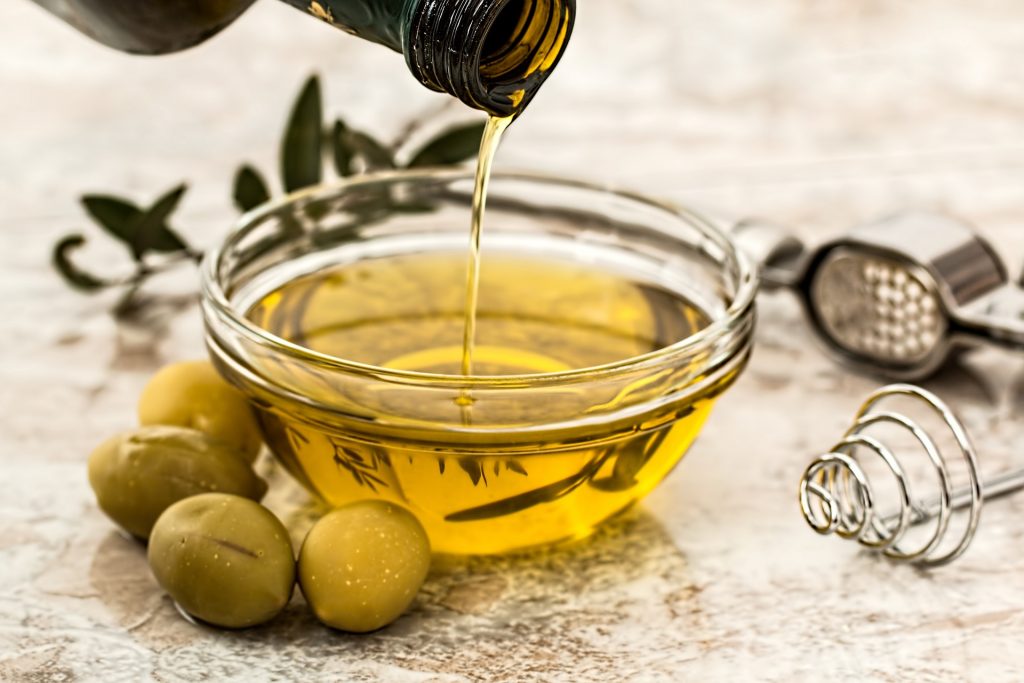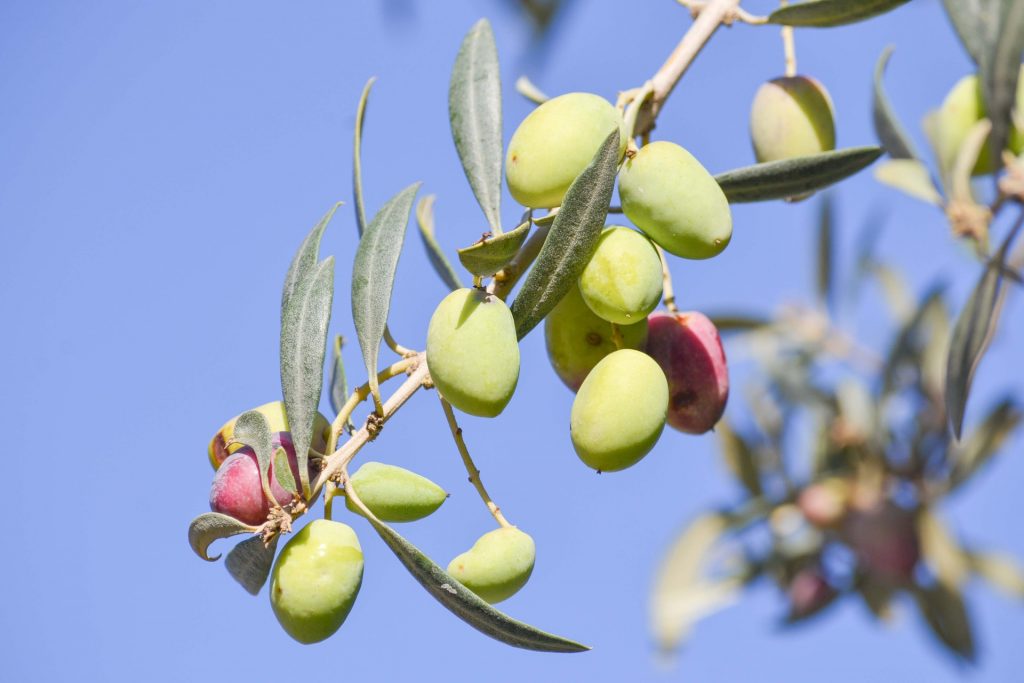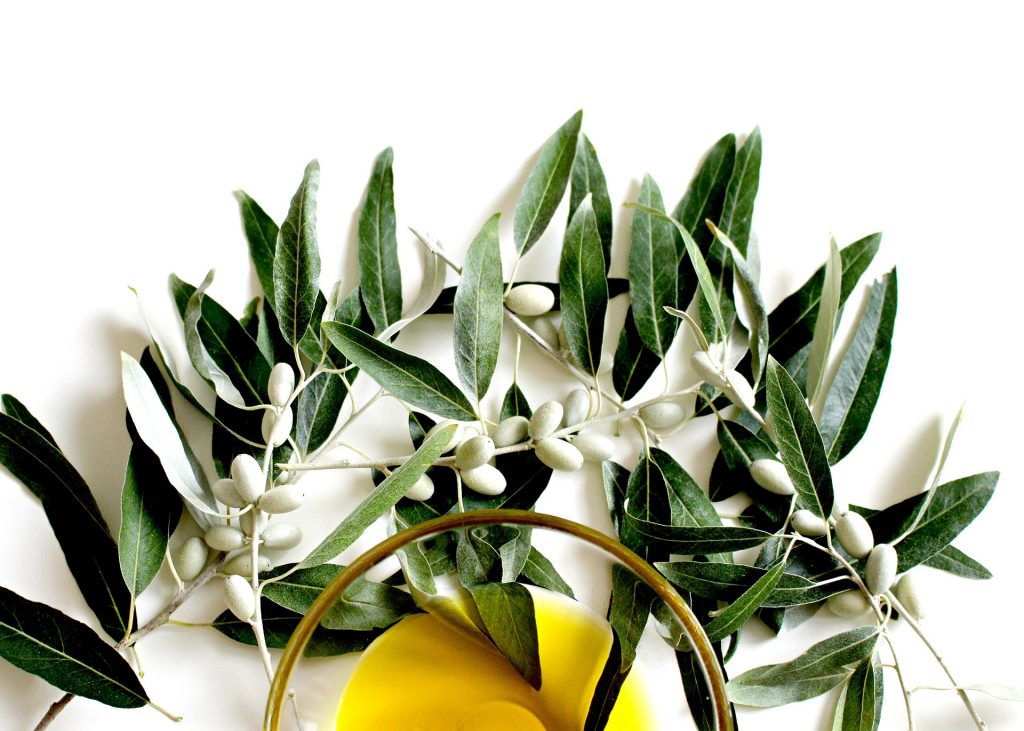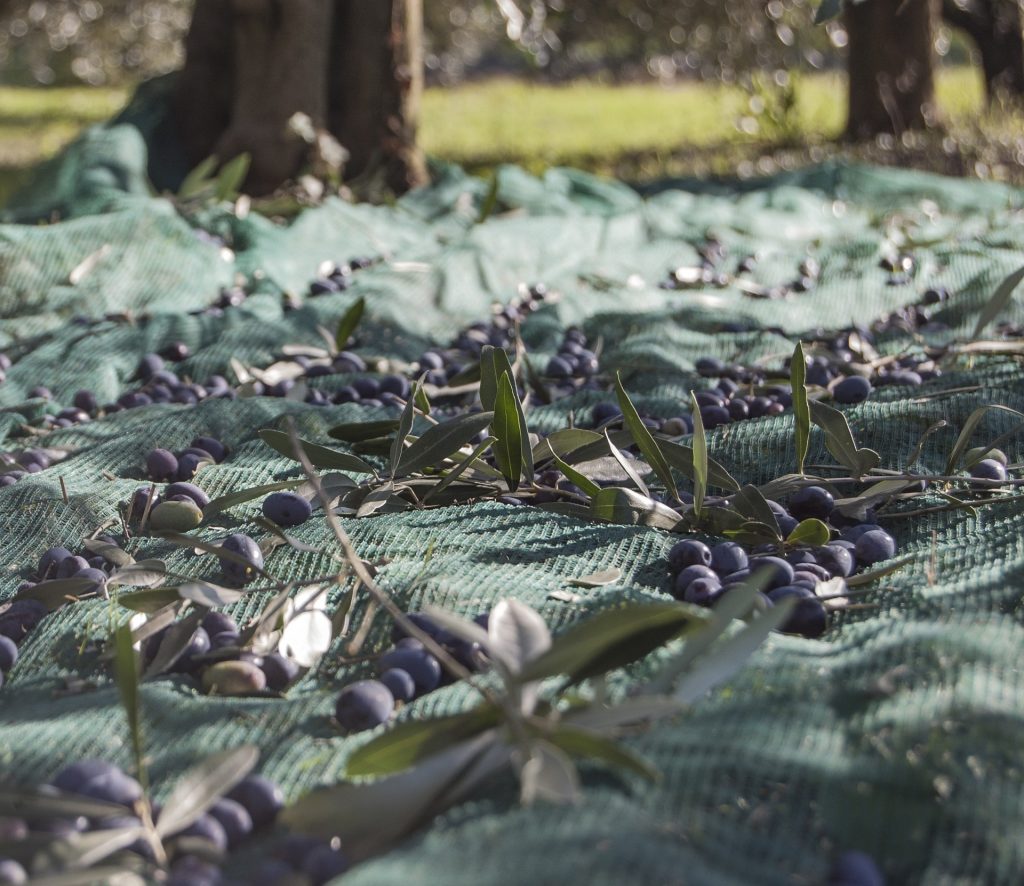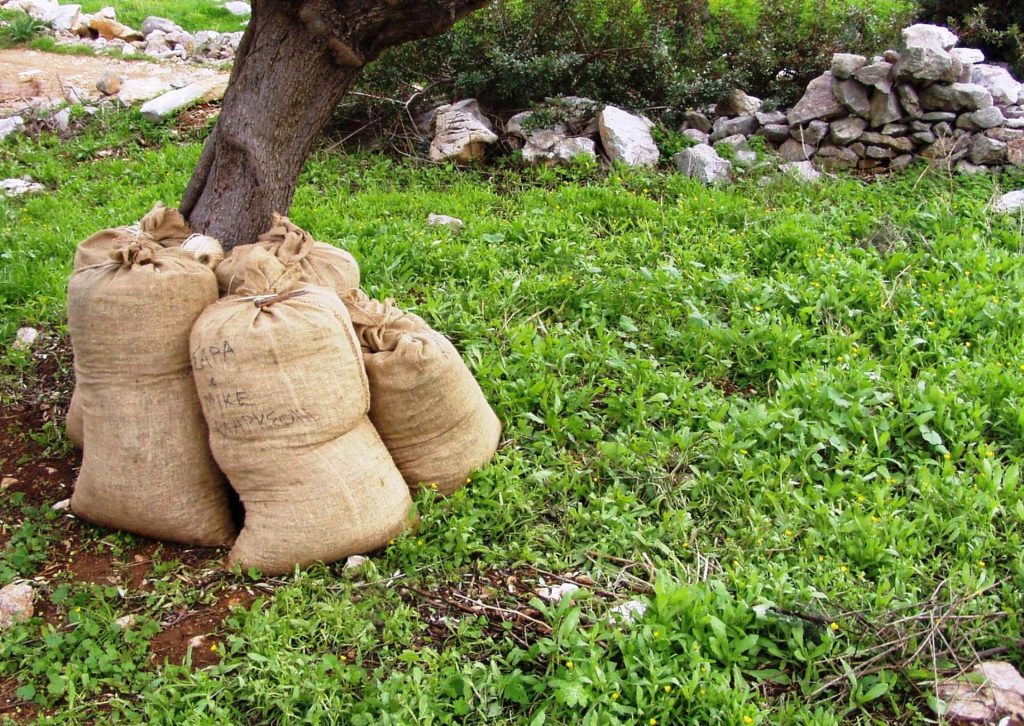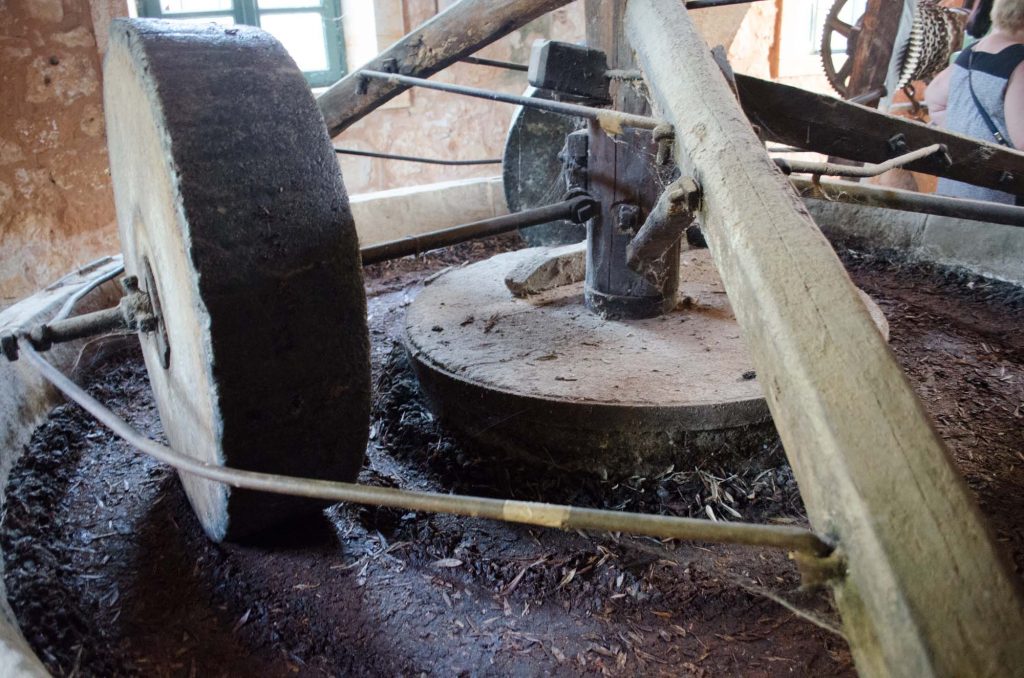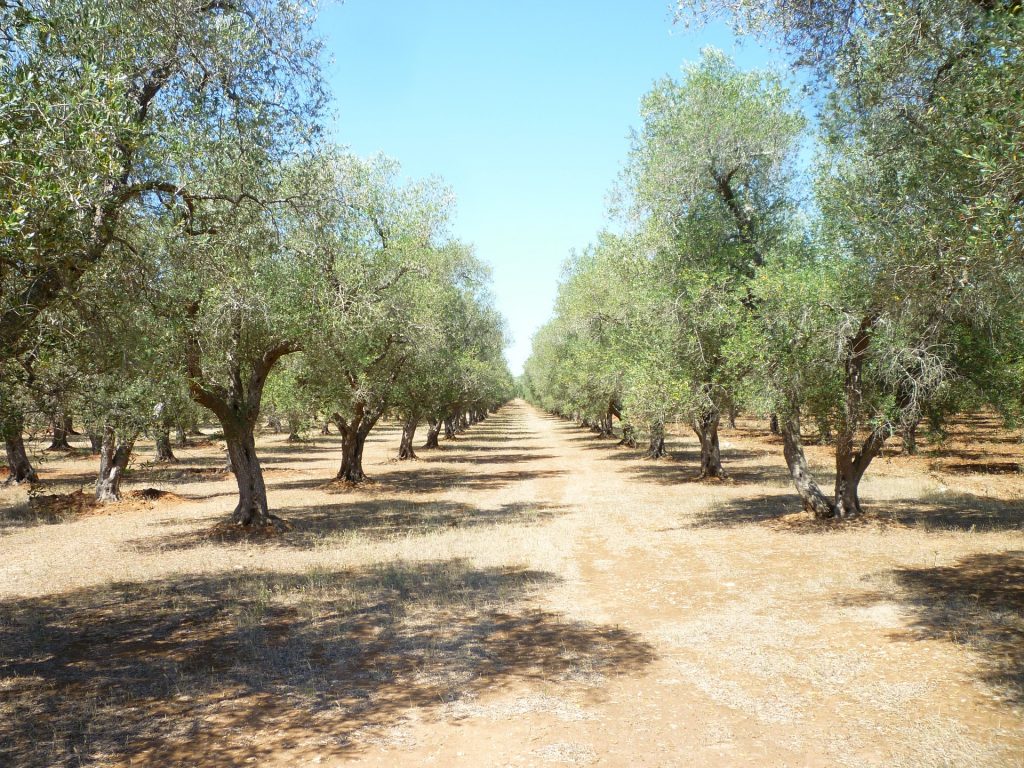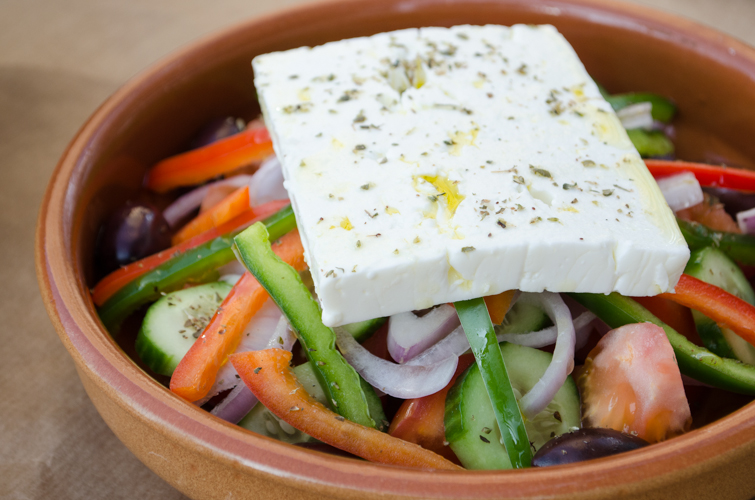For many Greeks, the olive harvest is an exciting part of growing up in the country. This special time of year can be experienced by travelers as well.
Olive harvest in Greece: History and Tradition
The cultural tradition of olive harvest dates back to the ancient times. The ancient Greeks believed that olive oil was rich in divine power. In fact it was a precious gift from the goddess Athena to the Athenians. The myth has it that the Athenians chose goddess Athena over Poseidon because she offered them a gift that was a source of life and would provide the nation with food.
This “liquid gold” was used in cooking, consumed in raw form as salad dressing and also as a base for making perfumes due to its tendency to last longer on the skin. Reference of olive oil can be seen in great works such as Pluto by Aristophanes. Hippocrates used olive oil-based ointments to treat wounds and scars.
Most Greek families own houses in the countryside and on the islands, and many are involved in growing olive trees and producing their own family olive oil. It’s part of the Greek culture, a family tradition that has been passed on from generation to generation. In the ancient times families who had more than 50 olive trees, were considered to have been financially well-off.
The uniqueness of Greek olive oil
The uniqueness of Greek olive oil lies in the climate that the olives are cultivated in. Natural fertilizers are also considered to be a key ingredient. Olive trees can survive without constant irrigation, they complete their own growing cycle and are quite resilient to climate change.
The ancient Greeks practiced a specific method of cultivation in order to avoid monocultures, they planted other trees and plants in between the olive trees to minimize the presence of pests and bacteria. Like wine, which absorbs the aromas from other elements it comes in contact with, the olive oil too is influenced by its surroundings.
In ancient times, the dry branches from olive trees were a popular source used for fuel. Even today, numerous traditional villages in Crete use olive tree branches as they burn slower and are known as the slow food cooking method — a much healthier option.
The process of olive harvest
Dating back to the ancient times, the olive harvest was considered an important time of year and it was an important family affair. Families would be involved in the olive harvest and could ask for help from their relatives either by blood or marriage or even their neighbors whom they’ve helped in return.
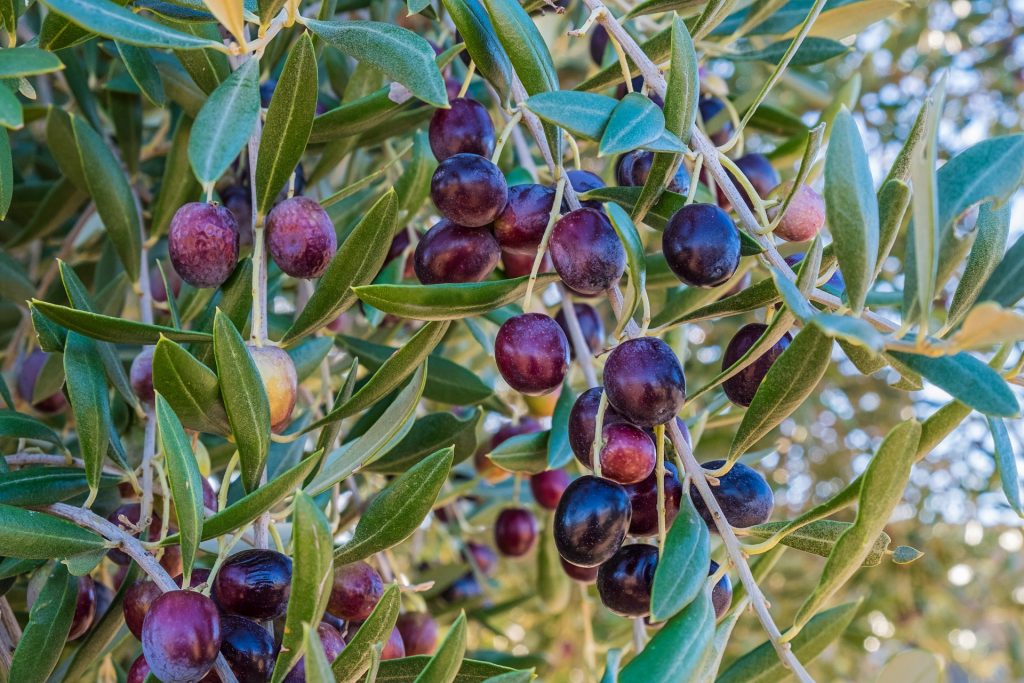 The proper way of collecting olives was by hand to ensure that no damage was done to the tree and to the olives. The green ones which were slightly touched by purplish color were ready to be picked along with the ripe ones. There is no particular time to start harvesting the olives, this is a process that usually lasts from two to three months. The harvesting season commences in November and lasts until mid-January. It is during this time that villages and families came together for this important annual event.
The proper way of collecting olives was by hand to ensure that no damage was done to the tree and to the olives. The green ones which were slightly touched by purplish color were ready to be picked along with the ripe ones. There is no particular time to start harvesting the olives, this is a process that usually lasts from two to three months. The harvesting season commences in November and lasts until mid-January. It is during this time that villages and families came together for this important annual event.
Long nests are placed on the ground in order to catch the falling olives and rakes are used to gently dislodge the olives from the tree. Ladders can be used to climb up and pick the olives by hand. The process is repeated until all the olives are removed from the tree. Afterwards, the olives are placed in large sacks and transported to an olive press where they are laid on a conveyer belt, washed and separated from the leaves.
Today, many of the modern Mediterranean olive oil producers use electrical machines to shake down the trees, however in Greece the ancient technique of handpicking the olives prevails. It may be costlier but definitely more environmentally friendly.
Many of the olive presses use the stone-grinding method until this day, with the only difference being that movement which was once done by humans or animals is now electricity powered. The pressed by stone is considered to create a more complex and healthier end product because this centrifugal action maintains the vitamins and the phyto-antioxidants.
Routes of the Olive Tree
A non-profit organization called “Routes of the Olive Tree” was established in 1998 to promote sustainable development across the olive growing regions. This initiative was officially recognized by the UNESCO as International Cultural Route of Intercultural Dialogue & Sustainable development in 2003 and as Cultural Route of the Council of Europe by the Council of Europe in 2005.
It acts as a bridge between Greece and the world to preserve the olive tree civilisation, which is a time-old cultural asset and an integral part of the Mediterranean civilization. The organization features various itineraries to learn more about and to discover the olive trees in the Mediterranean.
Join an olive oil harvest in Greece
Making of olive oil in Greece is a fascinating process and a perfect interactive holiday choice. Over the years olive harvest activities have become a popular trend in Greece. For outdoor enthusiasts this is a perfect opportunity to witness the whole harvest process and to master age-old harvesting techniques. Once you collected the olives in sacks you will be able to watch the liquid gold tickle down the pipes and then harvest the fruit of your labor.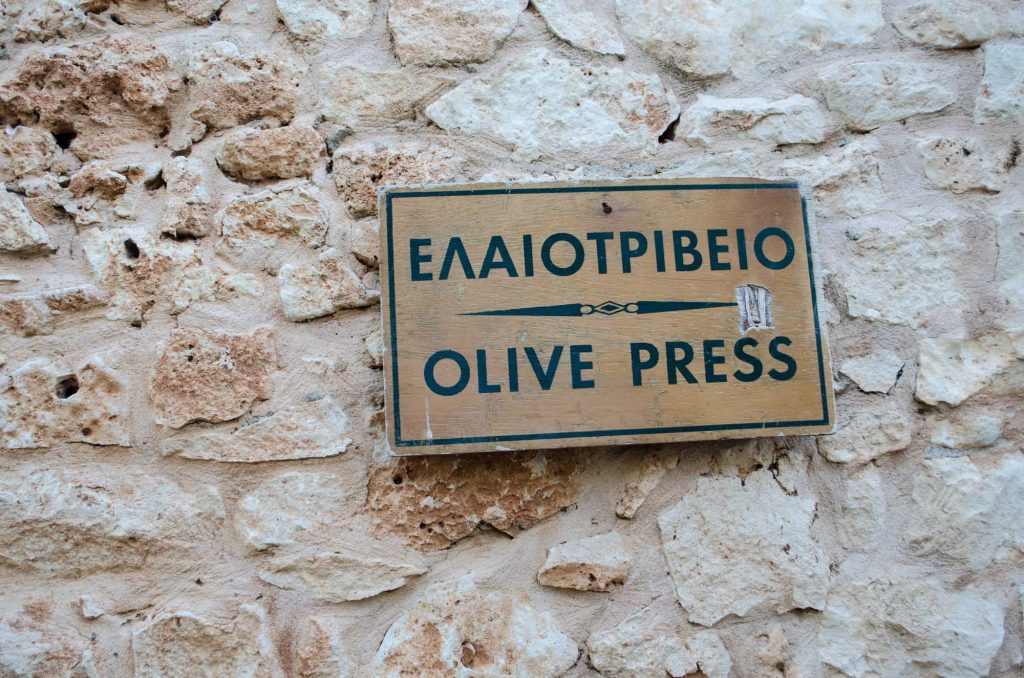
At the end of the harvest season a huge feast takes place to celebrate all the hard work and efforts. A variety of dishes are cooked using plenty of freshly produced olive oil. The taste will be even more divine because it will reflect your personal touch and involvement.
No wonder the Greeks are world leaders in olive oil consumption per capita. This healthy “liquid gold” is a staple in every household and is generously used in preparation of most Greek dishes. The wonderful health benefits derived from olive oil consumption make olive oil the heart of the Mediterranean diet which is considered one of the healthiest diets in the world. Be generous with your olive oil consumption and reap the benefits from its unique substances.
 Greek olive oil has won accolades all over the world, a much-loved product since the ancient times is one of Greece’s finest gifts. If you want to get a real taste of Greek rural life, how about joining an olive harvest to learn all about the making of olive oil in Greece?
Greek olive oil has won accolades all over the world, a much-loved product since the ancient times is one of Greece’s finest gifts. If you want to get a real taste of Greek rural life, how about joining an olive harvest to learn all about the making of olive oil in Greece?

